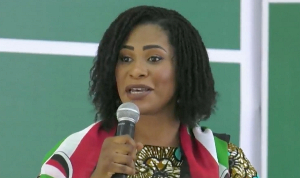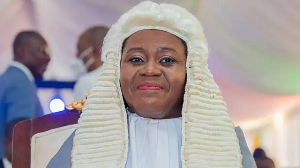Kumasi, Sept 22, GNA - The Ghana Statistical Service (GSS) is to engage 45,000 field officers to undertake the 2010 population and housing census.
Although the actual field officers needed for the two-week programme would be 36,000, the GSS is to engage extra 10,000 staff to make room for exigencies to ensure that the conduct of the census was not marred.
Mr Francis Yankey, a member of the Census Implementation Committee, said this at a workshop for media practitioners drawn from the Ashanti, Brong-Ahafo and the Eastern regions at Kumasi to sensitize and educate the media on the census.
He said the country had been demarcated into 36,000 Enumerating Areas (EA) for easy and effective enumeration of all persons found within the borders of Ghana. Mr Yankey said the demarcation of the EAs had been carefully done by experts to ensure that no area or group of persons would be left out in the enumeration as well as overlapping of areas to prevent double counts. Briefing the media on the arrangements made by the implementation committee on the census Mr Yankey said only people found in Ghana at the census night would be counted. This means that non-Ghanaians and Ghanaians who live outside the country but were found at the census night in Ghana would be enumerated whiles babies born after the census night would not be enumerated. Mr Yankey said the census night declaration would use a camera snapshot analogy where those captured on the census night would be considered as Ghanaians and therefore would be enumerated irrespective of background.
Mrs Araba Forson, coordinator of the census, said five districts namely Osu-Klottey sub metro, Saboba-Chereponi, Sene, Awutu-Efutu and the Bia districts had been selected for the trial census this year. Data would be collected on housing type, job type and all aspects of people's economic standing and urge the media who had been trained on the census to help the GSS win the support and cooperation of the people.
Mr Forster Agyaho, a member of the committee, said the questionnaire for the census had been designed in a way that it would be difficult for one to be enumerated twice because it was where one was at the census night that made the difference.
General News of Tuesday, 22 September 2009
Source: GNA












